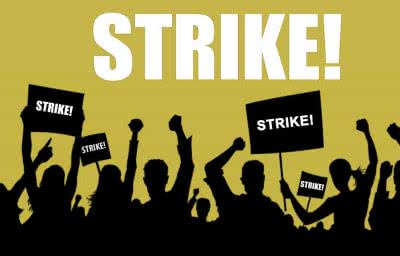strike
US /straɪk/
UK /straɪk/

动词
1.
2.
罢工
refuse to work as a form of organized protest, typically in an attempt to obtain concessions from their employer
示例:
•
The workers decided to strike for higher wages.
工人们决定罢工以争取更高的工资。
•
The union threatened to strike if their demands were not met.
如果他们的要求得不到满足,工会威胁要罢工。
名词
1.
罢工
a refusal to work organized by a body of employees as a form of protest, typically in an attempt to gain concessions from their employer
示例:
•
The union called for a general strike.
工会号召举行总罢工。
•
The transport workers are planning a 24-hour strike.
运输工人正计划进行24小时罢工。
在 Lingoland 学习这个单词